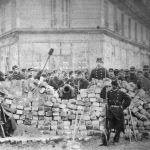For a period in the 1950s known as the Khruschev Thaw, the Soviet Republics enjoyed a brief moment of relative autonomy from the heavy handed leadership of Moscow. Latvia, a small republic on the Baltic Sea, took prime advantage of this period of liberalization under the leadership of a group called the Latvian National Communists. They saw a way forward that diverged considerably from Moscow, and took concrete steps to resist Russification of Latvia’s politics and culture. The Thaw was short lived, however, and the Latvian National Communists were eventually thwarted and the republic brought back into the Soviet fold. Guest Mike Loader gives an enthusiastic look at this high drama at the peak of the cold war, which gives us a glimpse into the inner workings of the Soviet Union from a different perspective.


